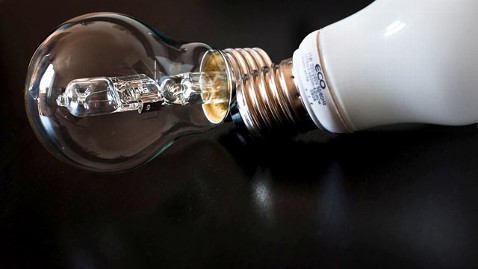Congress Defunds Ban on Incandescent Light Bulbs but Doesn’t Quite Save Them

Incandescent light bulbs are back.
A last-minute rider attached to the omnibus government spending bill defanged the 2007 energy standards for light bulbs that would have rendered the good ol' incandescent all but obsolete, starting Jan. 1, by stripping funding for enforcing the ban.
Beginning next year, the federal government had planned to start banning cheap, energy-guzzling light bulbs and instead requiring more energy-efficient bulbs be manufactured and sold.
It was a bipartisan idea, but conservatives have come to hate it. It wasn't just that the new bulbs are uglier, dimmer and more expensive, but that the federal government was dictating what kind of light bulb consumers could buy.
"The American people want less government intrusion into their lives, not more, and that includes staying out of their personal light bulb choices," said GOP presidential candidate Michele Bachmann, who, as a member of the House, introduced a bill to roll back the incandescent ban.
So today Congress took the teeth out of the incandescent ban by eliminating the funds the Department of Energy would need to enforce it.
But what many Republicans are celebrating as a win for individuals' light-bulb-choosing freedom will probably not save the energy-guzzling bulbs from disappearing off store shelves.
"The industry has moved on," said Larry Lauck, a spokesman for the American Lighting Association.
Lauck said U.S. light bulb manufacturers have already "retooled" their production lines to build more efficient bulbs, he said.
Joseph Higbee, a spokesman for the National Electrical Manufacturers Association, which represents 95 percent of U.S. light bulb manufacturers, said even if the Department of Energy does not have the funding to enforce the energy efficiency standards, manufacturers are not going to retro-fit their assembly lines to produce the traditional, less-efficient bulbs.
"The manufacturers have invested millions into the transitions and a delay in enforcement undermines those investments and creates regulatory uncertainty," Higbee said. "Without [federal] enforcement, it does allow bad actors to sell noncompliant products without fear of enforcement and that creates a competitive disadvantage for law-abiding companies."